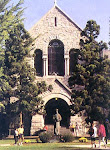First, the contrast between good teaching as an innate gift v good teaching practices as identifiable and reproducible techniques. Lemov's contention, as the title has it, is that inborn charisma or dynamism will not simply make one a better teacher. As journalist Elizabeth Green explains,
"There have been many quests for the one essential trait [of good teachers], and they have all come up empty-handed. Among the factors that do not predict whether a teacher will succeed: a graduate-school degree, a high score on the SAT, an extroverted personality, politeness, confidence, warmth, enthusiasm and having passed the teacher-certification exam on the first try. When Bill Gates announced recently that his foundation was investing millions in a project to improve teaching quality in the United States, he added a rueful caveat. “Unfortunately, it seems the field doesn’t have a clear view of what characterizes good teaching,” Gates said. “I’m personally very curious.”
When Doug Lemov conducted his own search for those magical ingredients, he noticed something about most successful teachers that he hadn’t expected to find: what looked like natural-born genius was often deliberate technique in disguise. “Stand still when you’re giving directions,” a teacher at a Boston school told him. In other words, don’t do two things at once. Lemov tried it, and suddenly, he had to ask students to take out their homework only once."
My second observation hinges on the example above: what can we, as college teachers, learn from k-12 instructors? "Standing still" and giving precise directions seem like the simplest things in the world to do, yet we know when we stand in front of the classroom how difficult these things can be. When students don't follow our instructions, is it worth considering how we might convey those instructions more clearly?The final thing I was struck by has to do with the effort to come up with a kind of knowledge that is specific to classroom teaching, that can be classified as neither "content knowledge" "pedagogical knowledge." As Green writes of the math education specialist (also Dean of the School of Education at the U of Michigan) Deborah Loewenberg Ball:
"...Ball began to theorize that while teaching math obviously required subject knowledge, the knowledge seemed to be something distinct from what she had learned in math class. ...Mathematicians need to understand a problem only for themselves; math teachers need both to know the math and to know how 30 different minds might understand (or misunderstand) it. Then they need to take each mind from not getting it to mastery. And they need to do this in 45 minutes or less. This was neither pure content knowledge nor what educators call pedagogical knowledge, a set of facts independent of subject matter, like Lemov’s techniques. It was a different animal altogether. Ball named it Mathematical Knowledge for Teaching, or M.K.T. She theorized that it included everything from the “common” math understood by most adults to math that only teachers need to know, like which visual tools to use to represent fractions (sticks? blocks? a picture of a pizza?) or a sense of the everyday errors students tend to make when they start learning about negative numbers. At the heart of M.K.T., she thought, was an ability to step outside of your own head. 'Teaching depends on what other people think,” Ball told me, “not what you think.'”
One might think that here's where the distinction between ourselves and K-12 instructors comes in. Yet many of us may have experienced the struggle to determine, or get past our own assumptions, about what students think and know. Is there a"knowledge for teaching" in our respective disciplines? I'd love to hear people's thoughts on this subject.

No comments:
Post a Comment